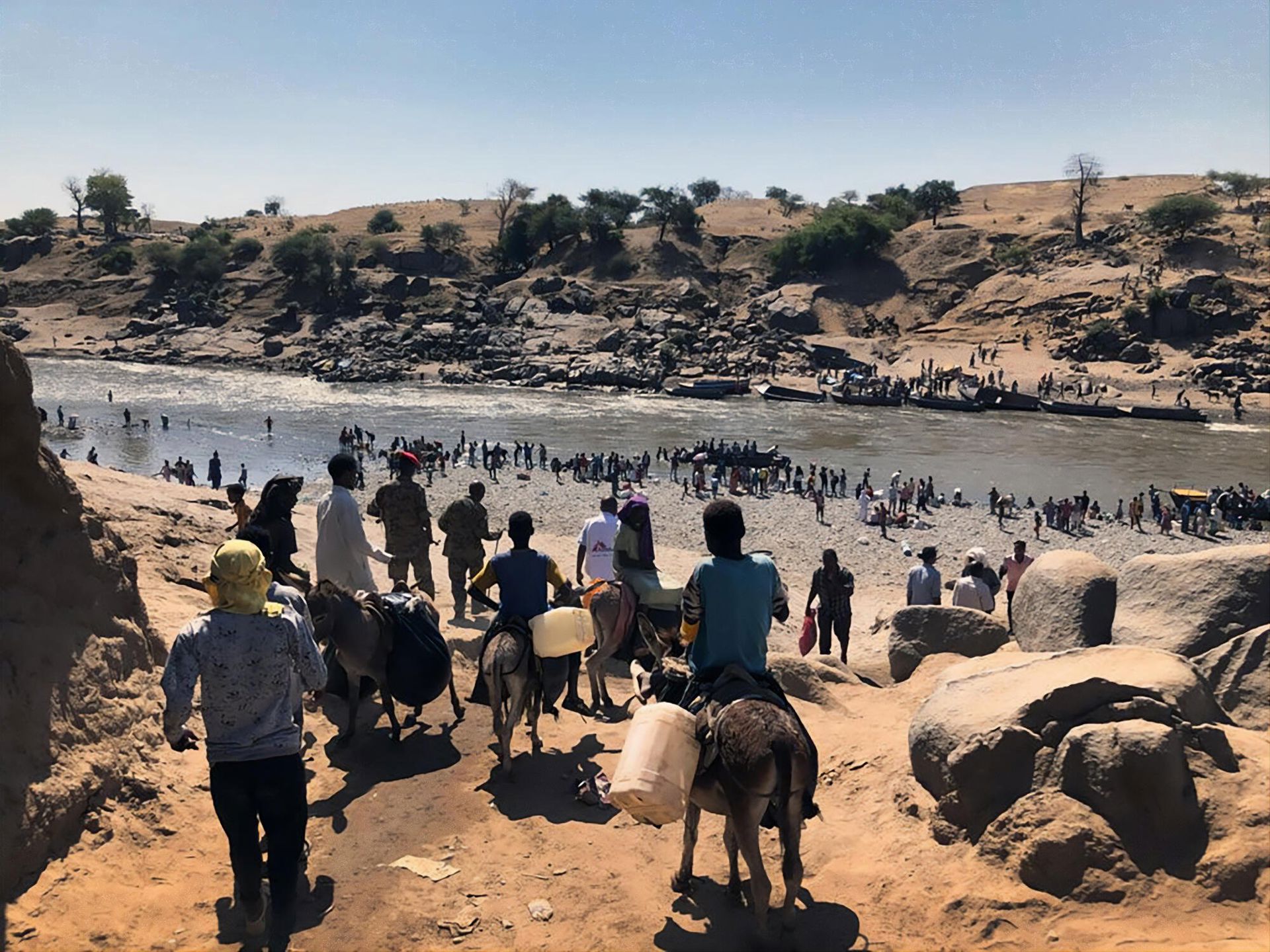Children and teenagers living with HIV are particularly vulnerable to stigmatisation and to the psychological burden of the disease, which often results in them struggling to follow anti-retroviral treatment. In Malawi, Médecins Sans Frontières’ “teen clubs” offer a safe space where younger patients have access to HIV care and follow-up, laboratory testing and psychological support, and where they can share their experience with their peers, some of whom have taken the role of mentors for the group.
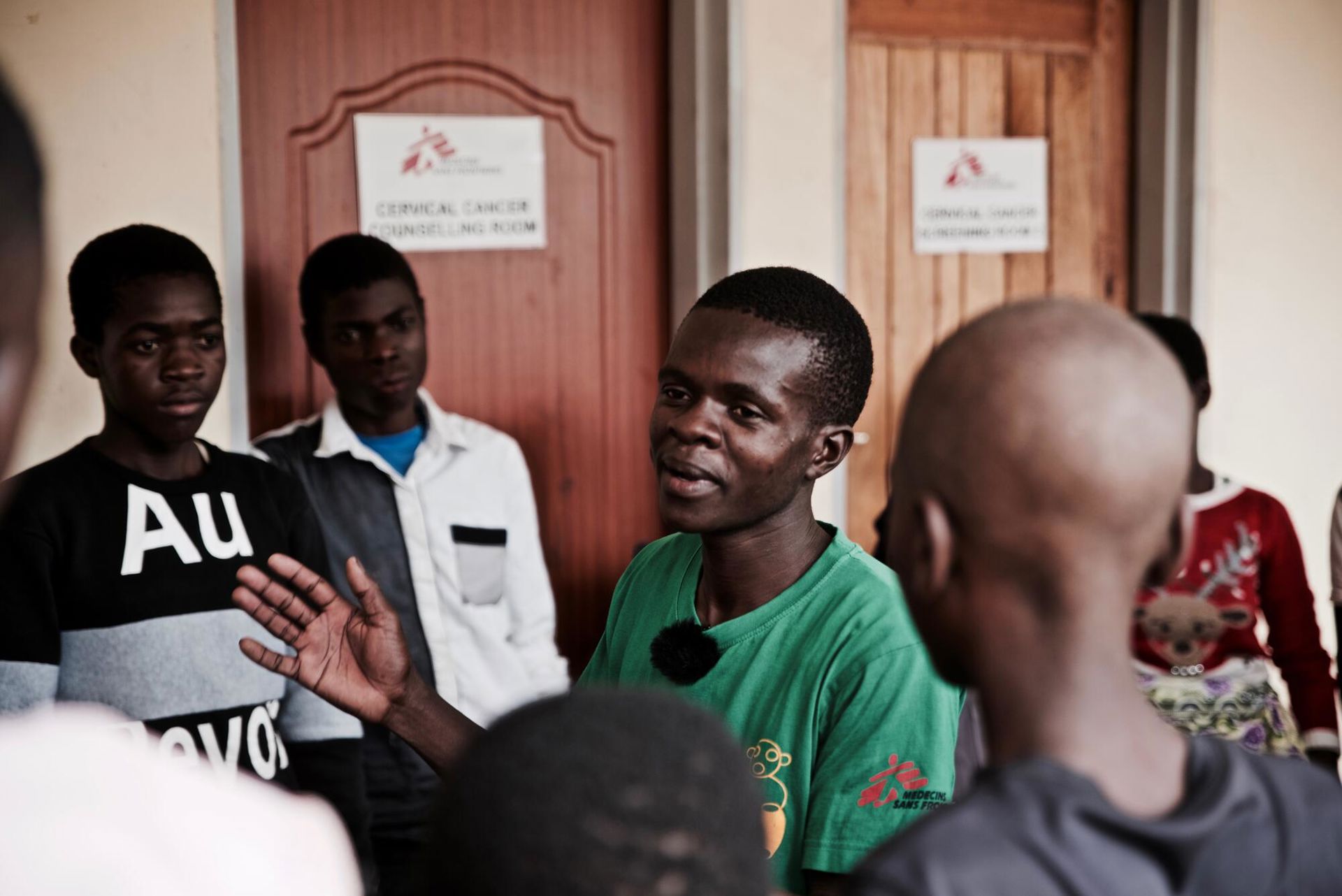
20-year-old Chilungamo talks to his fellow HIV-positive teenagers. After attending the Teen Clubs as a patient, Chilungamo became a mentor for his peers. © Francesco Segoni/MSF
When he learnt about his HIV status as a child, Chilungamo felt scared and confused. “I found out that I am positive to HIV in 2011, when I was 12 years old. I thought that was the end of my life, that the only thing awaiting me was death and nothing else”. Nine years later, Chilungamo hasn’t died: instead he’s doing quite well as a young man, all things considered. He has even taken a significant role in helping out other young boys and girls with the same condition in Chiradzulu district in Malawi, through his role as a peer-mentor in the “Teen Clubs” organised by Médecins Sans Frontières (MSF).
Malawi has one of the highest HIV prevalence rates in the world: roughly one in ten people in the country is positive to the virus. For over 20 years, MSF has worked in Chiradzulu to provide HIV care in an area where access to effective treatment and efficient testing is a challenge. While people living with HIV face many of the same issues regardless of their age and circumstances, over time it has become clear to MSF teams that children and teenagers are faced with specific challenges of their own, needing extra attention and dedicated care. With patients sometimes being under ten years old, even the simple explanation of what HIV-positivity is and what it means for one’s life can be difficult; other patients might just be approaching sexual maturity and struggle to come to terms with the fact that they live with a sexually transmittable disease.
“Letting someone so young know that they are infected with HIV is a process, sometimes a long one” says Miriam Harry, Project Coordinator for MSF. “This ‘disclosure’ needs to be accompanied by counselling, it must take into account the age and the maturity of the person. With the younger children, you often simply talk about a ‘jam’ in the blood that needs to be treated. As they grow up, they learn about HIV and become able to educate and support others in the same situation: their peers.”
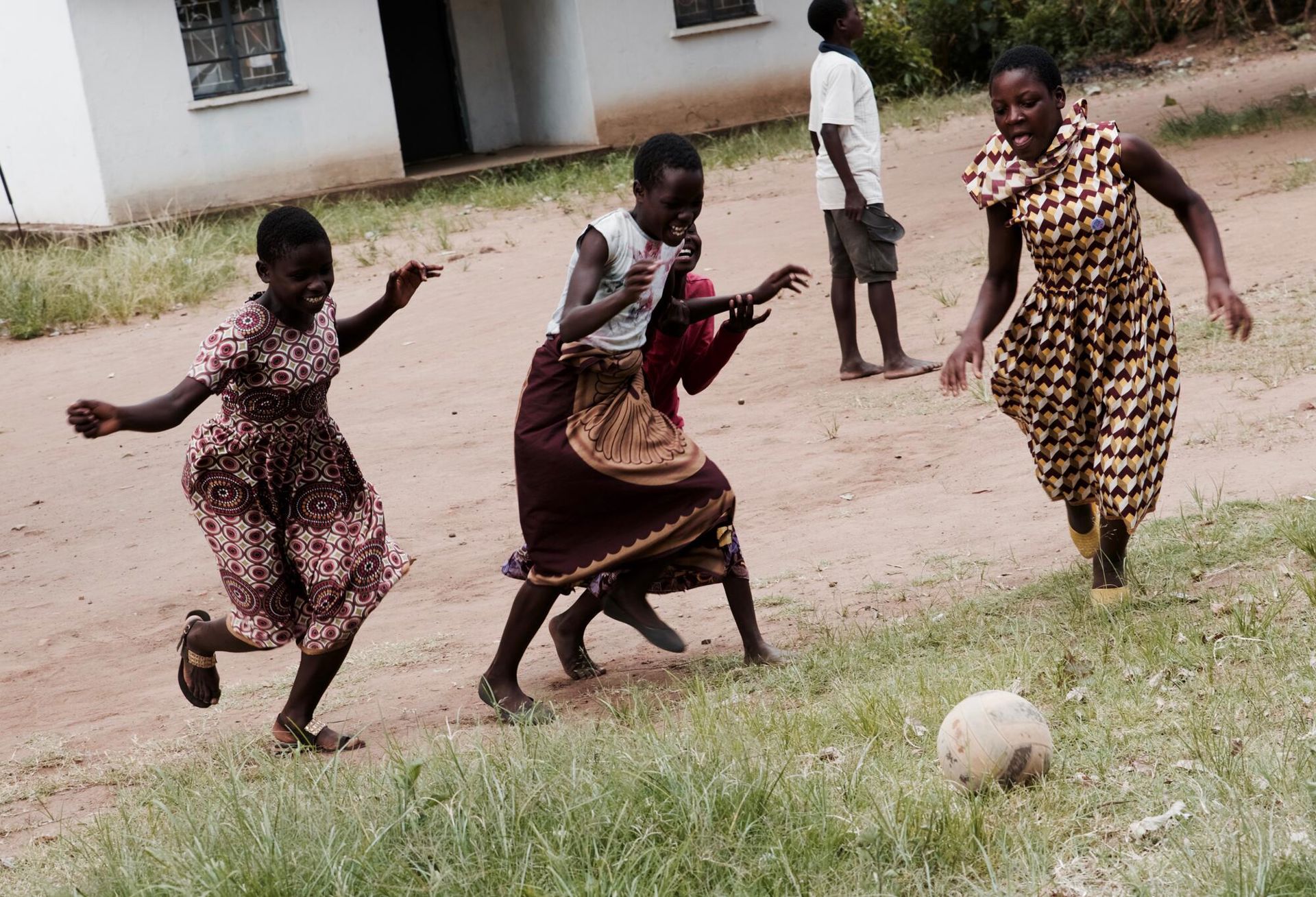
Young girls enjoy themselves at the end of an MSF Teen Club session in the Namibambo Health Centre in Chiradzulu district. © Francesco Segoni/MSF
In addition to these issues pertaining to the more intimate sphere, younger patients are particularly susceptible to the social implications of the disease. “Being accepted by their peers and their community is critical for them, at such a vulnerable age” continues Harry. “Equally important to them is being able to see a future, to have an education and opportunities in life, despite their condition.” All of these issues make it hard – and sometimes quite uncomfortable – for children and teenagers to be near adult HIV patients when discussing their condition.
“In the company of older patients I felt uncomfortable, shy” confirms Chilungamo. “Once I joined the Teen Club, I realised that we are many – children and teenagers just like me, living with HIV. We started sharing ideas on how to live a healthy life. I was encouraged in many ways, pushed to acquire a better knowledge of the disease.” Once he felt part of an accepting community, Chilungamo stopped being only a participant in the Teen Clubs to become a mentor for his peers, a role for which he was prepared and trained by MSF teams.
Teen Clubs are usually held on Saturdays to avoid disrupting school attendance. In between group support sessions, health education discussions and some much-needed playing time, children attend clinical consultations and have their viral load measured, so their progress is monitored and if a line or type of antiretroviral treatment is failing, they can be promptly moved on to the next line, before their conditions deteriorates.
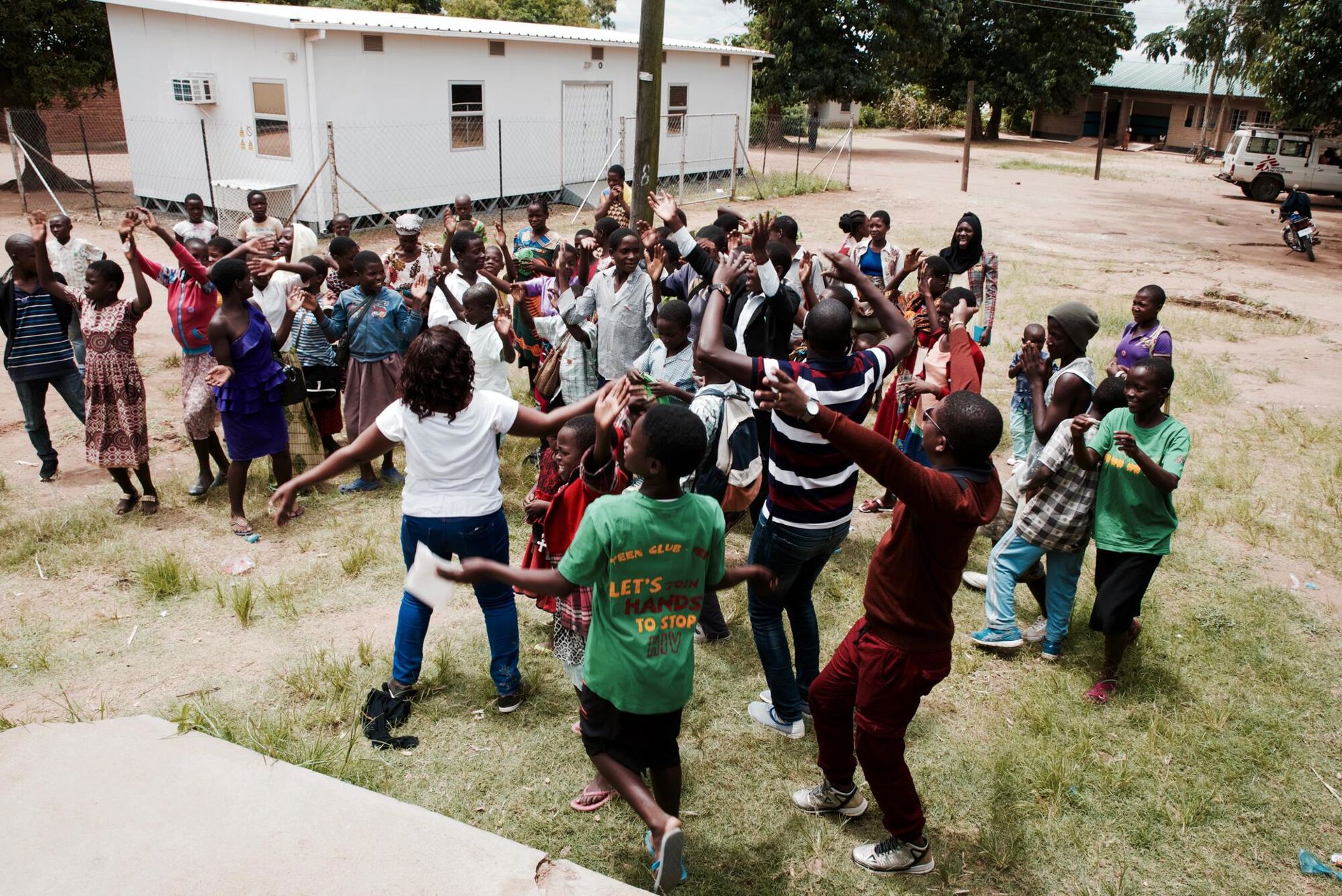
The Teen Club on Saturday ends with some singing and dancing, to celebrate the end of a good day. © Francesco Segoni/MSF
On a hot, sunny Saturday in early March 2020, before COVID-19 spread through Africa, as many as 172 children and teenagers attend the Teen Club held in Namitambo health centre, 40 minutes’ drive from Chiradzulu town. Tamika Munyenyembe, an MSF social worker, observes them as they move around the expansive courtyard of the centre. “Discrimination of people living with HIV is a real issue and for younger patients, it starts in the family”, she says. “Children may stop taking their medication because they are made to feel guilty about having HIV. They feel as though they are doing something wrong and come to associate HIV drugs with the problem – they might think that if they stop taking the drugs, the problem disappears. Unfortunately, it only means they will become sicker and eventually die.”
Inevitably, the COVID-19 pandemic forced a temporary reduction of the activity, including suspension of physical attendance to the clubs. Medical follow-up was only available by telephone and antiretroviral drug supplies were increased so that teenagers could reduce the number of visits to the clinics. The situation has since allowed MSF to re-start the Teen Clubs including physical attendance, albeit with some limitations (for example, recreational activities are still on standby), and things have quickly picked up again. “Attendance today is impressive: we are where we should be and I’m super happy today” says Harry enthusiastically. “I feared that we might lose contact with part of our patients, but right now it hasn’t been the case. We are still going through the process of analysing viral loads to understand whether these few months of reduced activity resulted in a worsening of our patients’ condition, but so far things appear to be OK.”
In 2019, as many as 9,200 patients attended MSF’s Teen Clubs. Like Chilungamo, for many of them attending the club might offer the transition from being overwhelmed by a condition they struggle to make sense of, to being better prepared to tackle it. Many find meaning and motivation in the opportunity to help others. “The bottom line is that the Teen Clubs have helped many young people to become responsible for themselves”, says Chilungamo, “and they are now able to manage their lives, just like I do.”
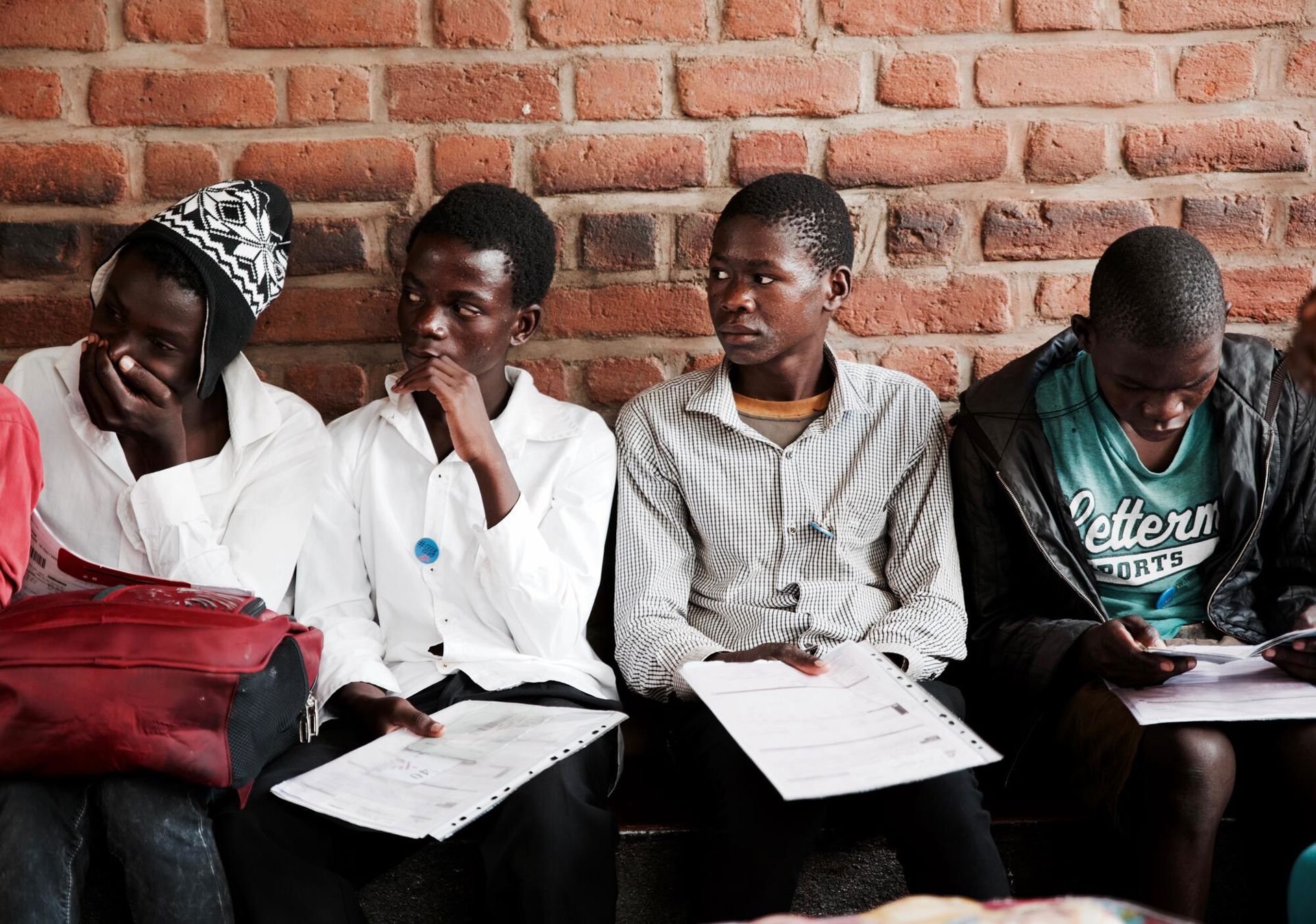
Teenagers wait for their turn to have a medical consultation. © Francesco Segoni/MSF


